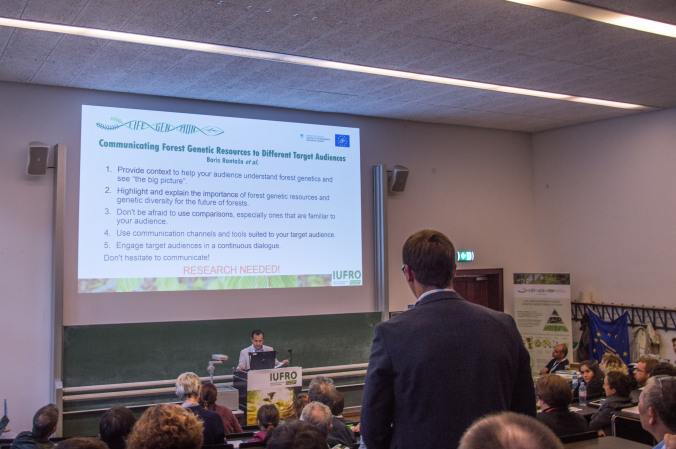NOTE: This text is reblogged from Boris Rantaša’s blog post at https://rantasa.me/2017/09/26/forest-science-is-alive-and-well-10-points-from-iufro-2017/
***********************************************************
September 26, 2017 – BORIS
From 17. to 22. September 2017 I took part in the IUFRO 125th Anniversary Congress in Freiburg, Germany. IUFRO stands for International Union of Forest Research Organization and is the oldest scientific union in the world. The congress presented the state of the art in forest research, development and practice.
I have tried to sum up what I learned at the congress in the 10 points below:
1. Forest science is alive and well – with almost 2000 contributions – oral presentations and posters – presented (over 3000 submitted), shows that forestry research is relatively vital and going as strong as ever. The same goes for the Slovenian forest research and development sector, which had a very strong presence at the IUFRO2017. As said at the opening ceremony: “The lady IUFRO is looking younger than ever at 125 years old!
2. Most forest issues today are global and this is why it makes a lot of sense to connect, cooperate, share knowledge and experiences on a global scale. The Earth is a single complex and rapidly changing system. Catastrophic weather events, invasive pests, increasing pressure on forests (from exploitation, overpopulation, recreation, tourism and wildlife) and are all examples of these issues.
3. Climate change is happening at an alarming rate and we need to act quickly and wisely if we are to adapt. Based on what I learned at this congress I expect paradigm shifts in silviculture and forest management from maximizing productivity to maximizing the resilience of forest ecosystems. The forestry sector will have to play a major part if we are to mitigate climate change successfully.
4. The hidden biodiversity in forests and forest genetic research are crucial for future forest health, adaptation, conservation and sustainable forest management. Conservation of forest genetic diversity, assisted migration of forest tree species, forest genetic monitoring etc. were all major topics at the congress. In Slovenia, we are addressing them within the LIFEGENMON project. There were some very interesting and encouraging genetic engineering news.
5. Communication is more important than ever. The awareness about the need to communicate and educate about forests, forestry and climate change is raising in the scientific community. We learned at the Congress that we must use science-based facts to fight fake news. Some amazing cases about communicating forest science and citizen science projects were presented at the congress. See my poster presentation 5 principles for communicating about forest genetic resources (link).
6. Forest education and pedagogy along with urban forestry are becoming more and more important for the future of forests with rising urbanization of the global population. Don’t know where to begin with your pedagogic activities? Try our Handbook for Learning and Play in the Forest (free download!).
7. Because of the increasing number of threats to forests, successful forest monitoring of the future probably won’t be possible without citizen science and without a part of the non-expert population playing a major part. Citizen science science projects for detecting alien species were presented at the IUFRO. In Slovenia, we have concentrated our efforts in the LIFE ARTEMIS project.
8. Forestry and wood processing industry will play a major part in the bioeconomy. Already many technical advances are being put to good use by the industry, but the bio-based nanomaterials offer a positive outlook for the future. Wood mobilization, especially from private forests, will play a key role in supplying the bioeconomy with sufficient resources. In Europe, we activating these potentials with the SIMWOOD project.
9. The social, health and psychological roles of forests are increasing in importance as well, but in my opinion, there is a lot of potential for research in these fields as we need more concrete conclusions and data to present and manage for them in a better, more informed way. Also, forest tourism can mean billions of dollars in economic benefits.
10. Freiburg is a really nice city and Schwarzwald is beautiful. You should visit when you get the chance.

Presenting my poster about Communicating forest genetic resources to different target audiences at the IUFRO 2017.

Leave a Reply